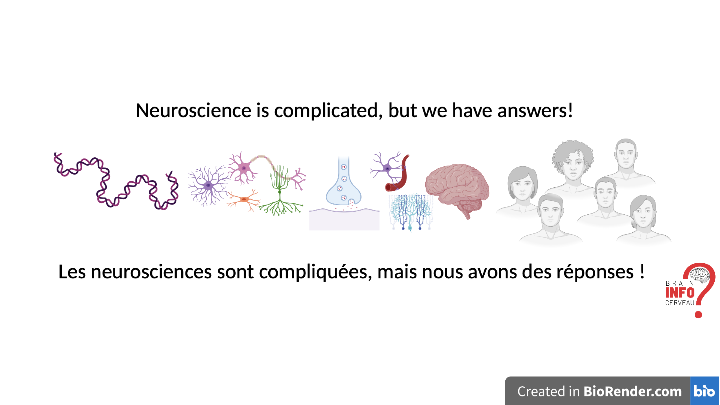
Brain Info / Info Cerveau is one of the newest science communication initiatives born at McGill. Founded by Dr. Reza Farivar, the director of the Integrated Program in Neuroscience (IPN), this student-run group seeks to answer community questions about neuroscience and the brain.
Since its inception in 2020, Brain Info has already successfully completed a pilot phase in which student volunteers answered over twenty questions from the community in English and French. The questions are submitted through an online form available on the Brain Info website, which was officially launched this March. Once submitted, questions are assigned to McGill masters and PhD students in neuroscience. Within a few weeks a customized, personalized, fact-checked answer is sent out privately to the submitter.
Filling information gaps
This program has a lot to offer to the Montreal community, whom it is designed to serve, and to the graduate student volunteers involved with the project. Information is easy to access in the online world, but it can be very difficult to verify the accuracy of online sources. That is where an initiative like Brain Info can fill the gaps. Graduate student volunteers studying and conducting research on a broad range of topics such as brain development, Parkinson’s disease, or the visual system, utilize and build on their research skills by finding the answers to submitted questions.
Being part of the initiative provides student volunteers the opportunity to hone their science communication capabilities, which is becoming progressively important as the research community increases emphasis on making science more accessible to the public.
For Christophe Tanguay-Sabourin, a current neuroscience masters student and future medical student, the past year has already been a great learning experience. One thing which he found striking is, “That a given question can be seen in so many ways, from so many perspectives. Going from the molecular or cellular approach to more general physiological system, to more behavioural and clinical ways, all under the umbrella of neuroscience.”
Encouraging people’s curiosity
On the other side of the equation, community members can learn about the latest research on a topic of their interest directly from someone who may be involved with that research, but in terms which are accessible to a non-specialist audience. The goal is to start a conversation with science at its focus. “It has been exciting to see such though-provoking questions come in from the community,” IPN PhD student Hilary Sweatman said, “It’s a great reminder that curiosity is something that we all share, scientist or not, and I feel privileged that we have the opportunity to answer and encourage these curiosities.”
McGill is no stranger to science communication, with excellent outreach programs in various departments, directed towards diverse audiences – from school students to bar patrons, and the one of a kind Office for Science and Society. IPN students themselves have a rich history of engaging with the public through initiatives such as BrainReach.
Brain Info continues the tradition of prioritizing science communication by widening the scope of offerings. The group is also building a strong social media presence where some of the answered questions are shared with permission to inform, delight, and hopefully, inspire a broader audience.
If you have a question about the brain on your brain, don’t hesitate to contact the Brain Info team. Consult the website for contact information.
